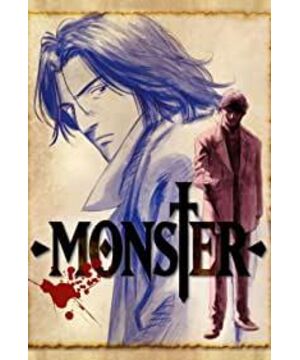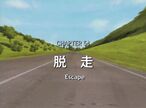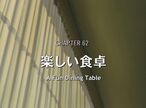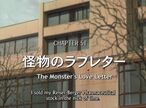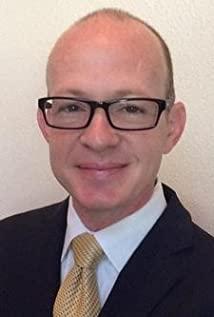The story involves a lot of political, economic and cultural content such as literary works, ideological concepts, and historical background. (Here I force a wave of "Dangerous Investigators" from Amway, although the name is not very good, but it is very good~) I don't think I can do it in order, and this will also make the work lose it should be carefully detailed. Taste the classic and fun.
The main line is a story about killing people to save lives. In fact, many themes that this main line wants to express are integrated into the various things that happen to Pegasus and the various people they meet on the journey. On the whole, this journey is also Tianma's mental journey, in the justice that as a savior, he must kill the murderer to save more people. Contradictions are sharp contradictions, and justice is higher than the doctor's justice. However, once the rescuer kills people, they are no longer qualified to save people, which is equivalent to suicide in itself, and life loses its meaning.
In the end of the story, Tianma failed to kill after all, that was the final choice. If there is no accident, he will definitely shoot, because there is a hostage and a child, the contradiction is at its peak. On the contrary, John must not shoot, because Pegasus is a benefactor to him. Therefore, as a reward that is different from ordinary people, he will let Tianma also experience the feeling he has experienced. Either kill him and fall into self-destruction, or other people will be killed by John, leaving Tianma alone. The consternation that finally appeared on John's face showed that this was an unexpected ending. I think this coincidence is also the only part of the show that John did not expect. Even as a god, he can't control the coincidence.
A person's journey will never stay peaceful for too long. John finally gave a new contradiction. He also regained his emotions because of his peculiar horse. With a "name" as a person, a bed with traces is the best for a person. proof.
This is a group drama, and the core protagonists are naturally Tianma and John, and all the stories and truths revolve around these two. The hard drive, sister, Ava, Grima, the doctor and several other people are also the protagonists. They have truth or experience in them, not only expressing the theme of the experience (especially Ava, a very real life turning point. The experience is usually to express human nature), and highlight the core characters Pegasus and John from the side or through similar experiences (such as Grima).
There are two other characters I would like to talk about right now, one is Hard Disk and the other is Ava. Lenk, I think he and John also have a contradiction, rationality and truth. Because the hard disk has absolutely true information, he represents absolute rationality; while John has lost his emotions, he is not a human being, he represents a perfect crime, and he can leave no trace. Both of them are extremes that cannot exist in reality. Therefore, this show actually has two perspectives, one is the perspective of God, which is the perspective of our audience, but you may not understand the character of Lenke, thinking that he has no IQ (at least I have never watched and thought about it before station B Other barrages or comments _(:з"∠)_) The second is the perspective of Lenke, that is, the perspective of "Pegasus is the murderer", because as far as the facts in the play are concerned, the perpetrator is a human, so it can only be Pegasus, A rational and thoughtful genius brain surgeon with a high IQ, "John" has no meaning other than to exonerate (and even that is a clumsy and ridiculous excuse). So Lenk is reasonable from beginning to end, until at the end, absolute reason will break when it witnesses the reality of God beyond human reality, and reason cannot analyze a "person" without emotion. Lenk will definitely kill John in the end. A perfect sinful God should not exist for absolute reason anyway. John can destroy the world. In addition to this, there is Lenke's experience, that is, his family. In fact, he is not a human, but a god. No one can achieve absolute rationality. The author endowed him with a unique divine ability (perhaps only after marriage _(:з"∠)_ ), so he cared about his work and not his family. . In the end, he also had flaws, and finally a case he handled was unsolved (referring to the previous one, who thought the murderer was Tianma), so similar to John, his godhead was also broken. In the end, he became a professor at the Police University, began to educate people, paid more attention to people's feelings, and believed that he would eventually reunite with his family (at least with his daughter).
Ava is also a very brilliant character, and a real, arguably the experience of an ordinary person on the fringes of the mainline. From prosperity to decline, from an arrogant eldest lady to an ordinary person who has experienced hardships, she is more extreme than ordinary people, so the changes are more obvious and the theme can be more prominent. A core of her life is Pegasus, because she realizes Pegasus is the only one who truly loves her, not for fame and fortune. In addition, there are several turning points. First, her father died, she was at a loss, and the only person who treated her with sincerity rejected her dependence. She was helpless and began to sink. The second is to burn down the house. This is her decision to live in the past. At this moment, her mood has changed once, and she is completely different from the past. (The work doesn't revolve around her, but a scene in the sinking and Tianma's timeline suggest that the length of this dark period she went through was enough to change her mindset.) She just wants to find Tianma, and here I think her nature is arrogance (Tsundere ), it was said that he hated Tianma to kill him. At first, he had this unreasonable idea because of anger (plus the gardener's stimulation), and transferred the error to Tianma (too common _(:з"∠)_), and later But it was actually covering up her shame and the love that she knew to cherish because of her loss, and she couldn't do it. The third is to fight Robert to save Tianma. Here, she clearly reveals that she actually loves Tianma instead of hating it. At the same time, she also realizes that it is impossible to regain her old love. The fourth is to meet Martin. At this time, she already has a lot of experience and sees through a lot, but she is not yet afraid of death. At the same time, she fell in love with Martin, found true love, and completely walked out of the heavenly horse. It can also be said that she has almost returned to normal at this time. It's a pity that Martin died, like a punishment for her. However, this time, she did not sink, but began to quit drinking. This change showed that her will has become firm, which is in sharp contrast to the previous loss of Tianma. The fifth is determination to help Tianma kill John, which actually means that she has dared to face the darkness, and at the same time is to avenge and do her best for the person she loved deeply. Even if we know that we may hit the stone with the egg, we will go through fire and water. This is another sublimation. We can no longer entangle the past Ava and evaluate her behavior. She has begun to take the initiative to give and help others. In short, her experience shows the strong side of people, a very positive and real human nature. This is how people grow up through many setbacks and hardships~
Other characters, more or less, have a lot to talk about. For example, it is easy for Grema to pretend to laugh, but it is impossible to pretend to cry, and her sister is also the cause of everything... Later Let's talk more deeply...
Finally, I want to say that whether animation, film or novel, as long as it is not documentary, there are many modifications, the purpose is usually to emphasize its theme (referring to those real works that the author originally wanted to express). Therefore, we need to see, ponder and think with the idea of "non-reality but reality derived from reality", and combine our own experiences to obtain precious life philosophy or experience. It is certainly good for the work to be contagious, but being addicted or even mistaken for reality is a manifestation of lack of criticism and inexperience. It is a personal issue and has nothing to do with the work. (One more thing to say here, I always think that groups with a certain degree of criticality like us need to at least consciously guide more people who do not have this ability, rather than nothing to do with themselves. At the same time, because of lack of experience Or cognitive bias suffers in society, which is not only a very normal thing, but also a good way to cultivate ability.
View more about Monster reviews


